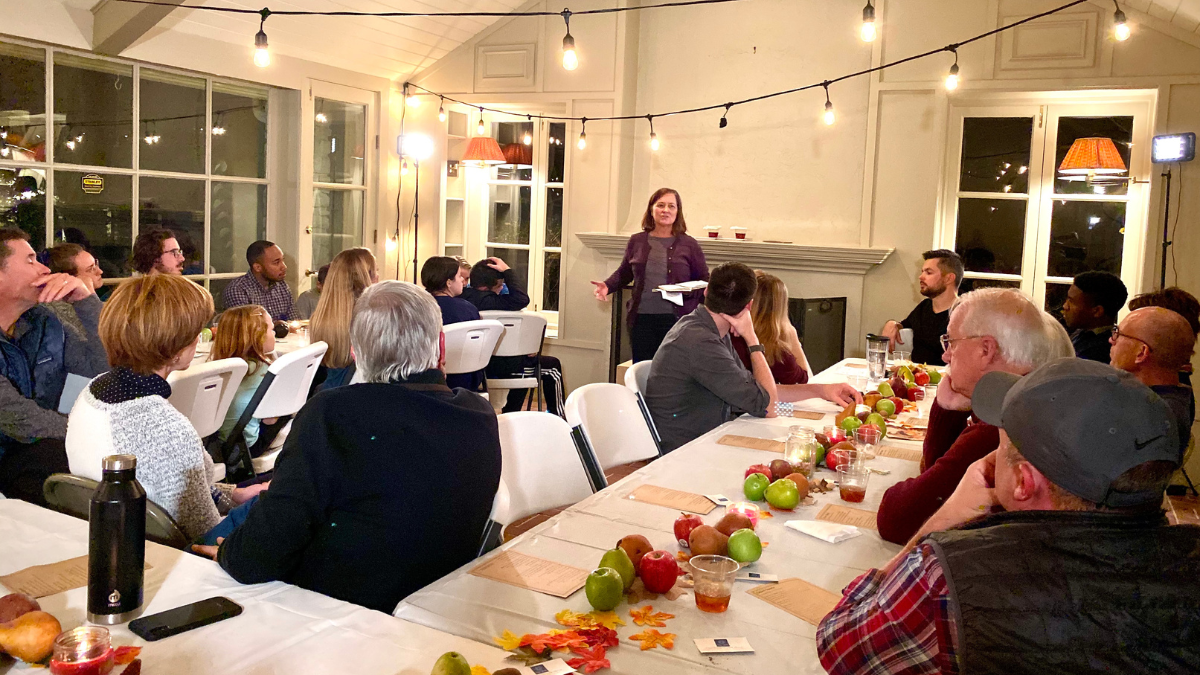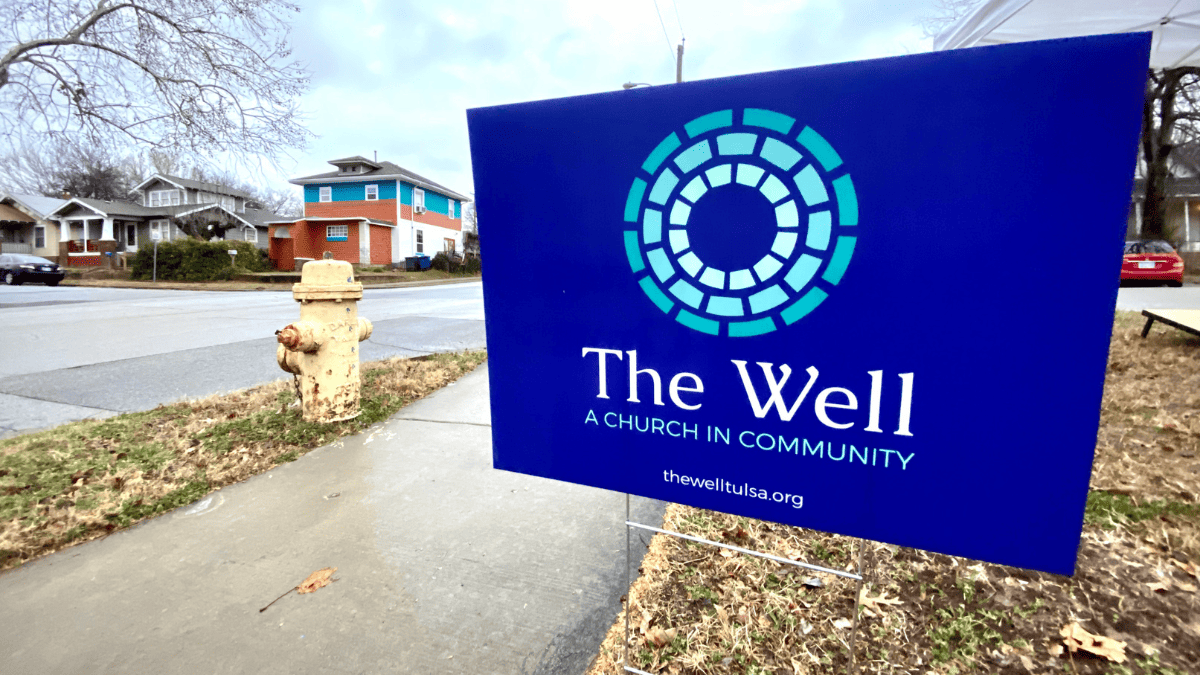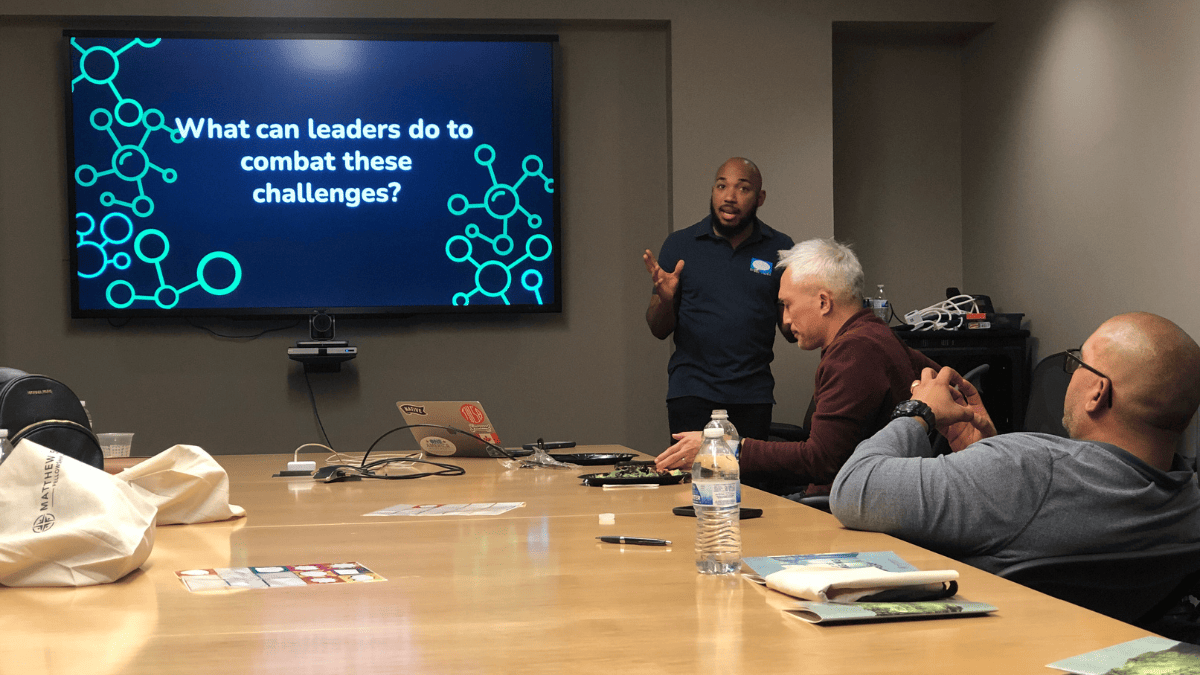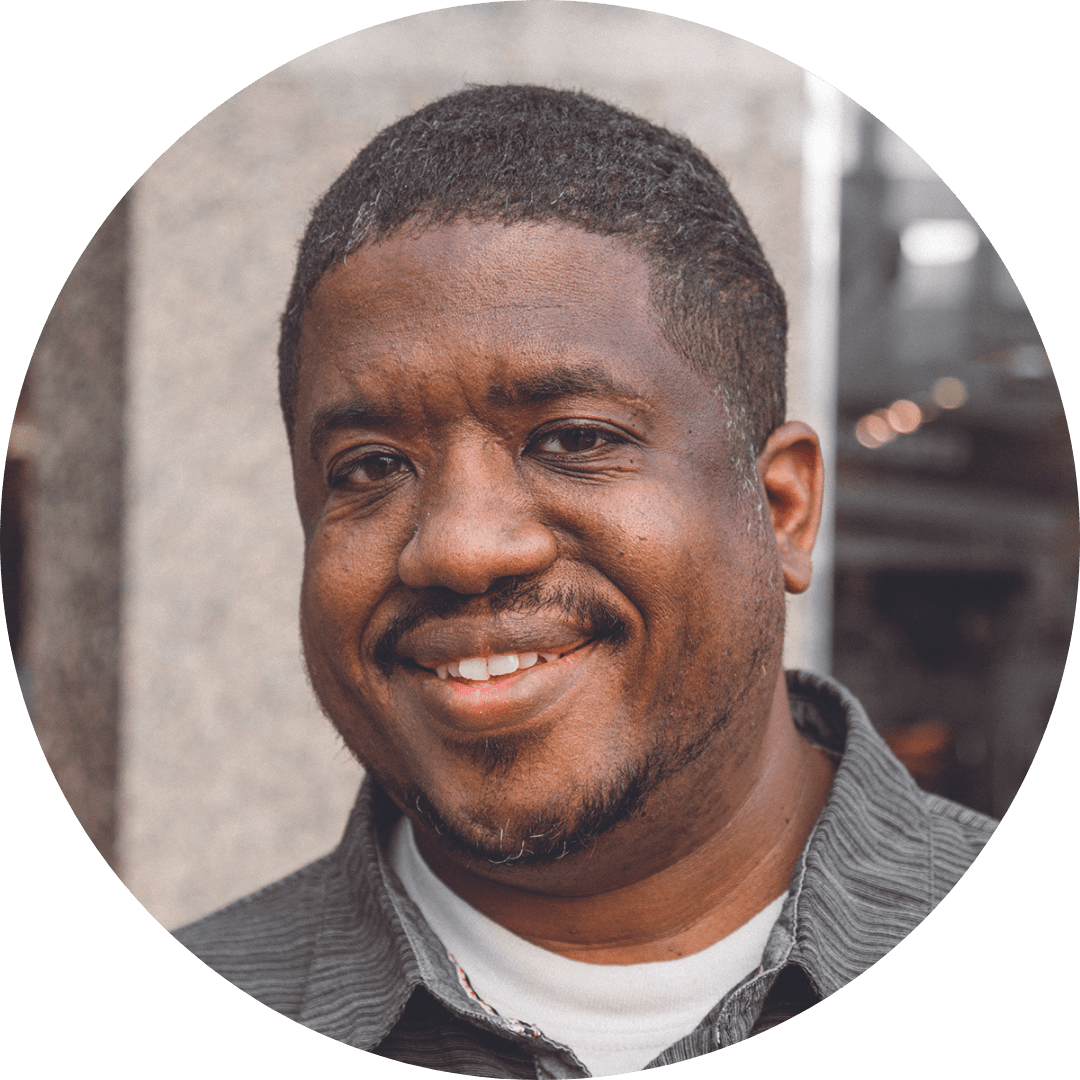Denise McKinney is pastor and church planter for The Well, a meal-based Covenant church in Tulsa, Oklahoma. She serves alongside pastoral co-laborer Anthony Archie. Together they help lead the Matthew 5:9 Fellowship, which seeks to bring divided groups together. In a virtual sit-down, the Companion asked how they interface with people around issues of politics, community, race, and religion. Their conversation has been edited for length and clarity.
How did you each get involved in the Matthew 5:9 Fellowship?
DENISE: Matthew 5:9 is a fellowship under the umbrella of the One America Movement, which was founded by Andrew Hanauer after the 2016 election, because he was concerned about political polarization in our country, the language we use to talk about others who believe differently than we do, and how it trends toward violence. One America is an intra- and interfaith organization that works with Christians, Muslims, and Jewish congregations, people of other faiths, and people with no faith at all. They develop smaller umbrella fellowships to work within each faith community, so people can ask, “What’s happening in our community, and what do we need to work on?” At the same time they can build bridges with other communities that are different from them.
I like to say I’m accidental board member of One America. Around 2018, their first chairperson was someone I’d known since childhood. At the time they had board representatives from the East Coast, the North, and the West Coast, but no one from the middle of the US. They wanted an evangelical pastor, and my friend said, “I know somebody!” I knew nothing about One America, but I talked with Andrew and I just loved the mission. I had just graduated from North Park, taking classes that were so diverse and made me dig into my life and the privilege surrounding my insulated church experiences. I thought, I think I’m supposed to do this.

When I joined the board, there were only two staff people. Now they have around 20 or so staff. The goal is to get into communities and understand some of the things that are pushing us apart, things that are rooted not in reality but in social science. They want to show people, “This is what happens in your brain when things become polarized and toxic, when it becomes so bad that you want the person or the group in front of you destroyed because they’re different from you.”
This mission has impacted my friendships, it informed how we planted our church—it really has been a life-changing experience.
ANTHONY: I was born and raised in Chicago, Illinois. I grew up on 97th and Vincennes, right around the corner from Oakdale Covenant Church, which is where I went for pre-K and second grade. Later I learned the history of that church and how Oakdale influenced the Covenant overall, and it made me very proud to have been there as a child.
My parents discipled me in the Scriptures, and early in my life I felt a call to Christ and ministry. In high school I had a small Bible study and loved going to church. I was a musician, so I found a lot of connection serving with the band.
I ended up attending Oral Roberts University in Tulsa, where I played drums at various churches. One day Denise shows up in the band room. At the time, she was serving as director of student ministry at Redeemer Covenant Church. They needed musicians for the summer camps they were hosting at an elementary school, and she was looking for volunteers. That summer I got to know her, and over the years our paths kept crossing in ministry.
Then Pastor Denise approached me and said, “I have this desire to plant a different kind of church.” In Tulsa, we’re considered the buckle of the Bible belt—there are 500 churches, for every taste and flavor, and a ton of folks who used to go, but don’t anymore. Her vision was based on the New Testament, where we share our lives together around the table. So I joined the planting team for The Well, and Pastor Denise brought me to Midwinter so I could learn about the Covenant.
Being a young Black man who grew up on the South Side of Chicago, and then attending a primarily white university, I did not fully appreciate the disconnect within white evangelical spaces around race, ethnicity, and injustice. Even within my own ministry, when I brought my experiences of discrimination in the church or in daily life to a men’s meeting or someone in the congregation, I would get blank stares—or outright denial. The Covenant was a place where I saw a mosaic, and a sense of diversity and freedom in Christ. I was totally smitten.
I serve The Well as associate pastor and preach about once a month or so. Our church is small enough for everybody to do a little bit of everything. Some days I’m looking after the kids, sometimes I’m picking up the food because we’re a dinner church.

The Well has helped me to reframe my own faith and connect issues of justice and equity with the call to Christ. I can sit down with folks who look different from me, and there’s space for exchange. In our services we have some storytelling from the Scriptures, but the majority of our time is in small group discussion around the table. We have people with PhDs in church history conversing with someone who’s 60 days sober. There are rich folks, poor folks, Black, white, and Hispanic. Some folks work with Indigenous populations at some of our universities in Oklahoma. So it’s been a safe space for me to experience my own faith.
Tell us more about Matthew 5:9.
ANTHONY: When we launched The Well, I was teaching middle school in Tulsa public schools. Matthew 5:9 refers to the “Blessed are the peacemakers” text. It’s a growing group of evangelical leaders who are trying to use their influence as peacemakers in a toxic culture.
About 18 months ago I joined the staff as their outreach manager. We provide resources, online and in person, on the social science around polarization. For example, if a pastor is having trouble navigating a certain issue with their congregation, we might have resources that can help provide frameworks for healthy discussions. Through the generosity of some of our sponsors, we also provide pastoral retreats. Part of what we’re hearing from pastors, especially during election season, is, “We need a break.”
It’s hard out there for pastors.
Yeah, absolutely. Last week we had a listening session without about 30 pastors from across the country where we asked them what they needed for the upcoming election season. Melissa Emerson of Mosaic Covenant Church in Houston, Texas, has hosted workshops for us in the past. She said, “We need to develop some liturgies around unity.” So we’ve been working on call-and-responses for congregational use so churches can practice what it’s like to offer kindness to one another.

What does it mean for you personally to do this work?
ANTHONY: I want to be the type of person other people can feel connected to. Regardless of our differences in politics or religion, I want to be someone you can feel safe and accepted with.
DENISE: We just took a group from The Well to the One America summit in May and had a panel discussion so they could debrief at dinner church Sunday night. It was phenomenal. Many of them said they had never been in a space like that. They talked about what they learned and how they wanted to apply it at home.
I like to think I’m pretty good at dealing with people who are different from me, but I have areas that need work too. It’s hard for me to get past the hurdle of pastors who don’t think women should be in pastoral ministry. At a meeting a few years ago, a pastor was being very dismissive toward me, and I was irritated. I remember telling Andy, our founder, “I just can’t with these guys.” He was very gracious and understood that I encounter that challenge often, but also said that if we don’t engage people with those views, we won’t make any progress in this work.
I felt really convicted—that I needed to get over myself and be confident enough in my calling to stop letting it prevent me from having a good conversation.
Also, I come from a family with a broad range of political opinions, and I’m not great at this yet, but I’m learning to step back when I feel that emotion starting to rumble, take a deep breath, and stay connected in the conversation. I’m also growing in learning to assess when we can have the conversation and when it’s not a good time for it.
ANTHONY: I was recently invited onto The Christian and the Atheist podcast, and after I explained what Matthew 5:9 Fellowship is all about, one of the cohosts said to me, “I don’t share your belief, but I hope that you’re successful. The world will be a better place if there are more Christians like you who are willing to listen, not to win, but to help me feel heard and understood. I may not agree with you now, but maybe tomorrow I will.”
DENISE: This posture of needing to win at any cost that we see so much in evangelicals, it’s like look… if I don’t think that our God has already won, then I have missed the whole point.














